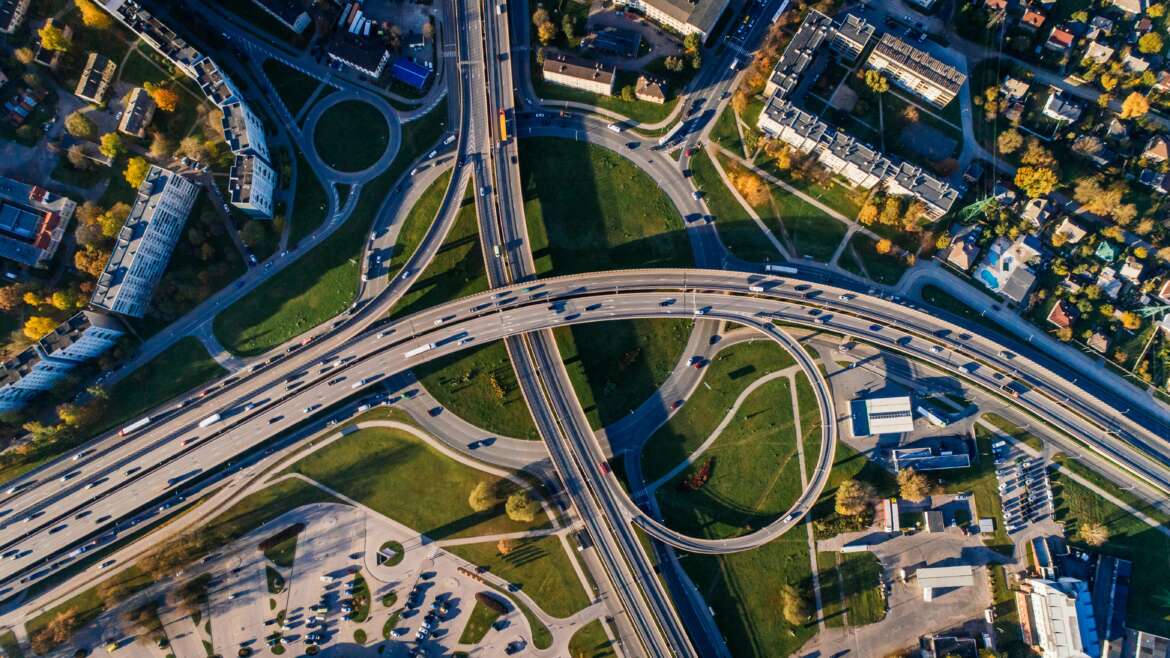Last mile logistics – solutions for vehicle delivery in cities
Last mile logistics is one of the biggest challenges of modern urban mobility. Especially in German metropolitan areas, providers of vehicle logistics are faced with complex requirements: tight delivery windows, environmental zones, increasing traffic congestion and growing expectations of sustainability. At the same time, the demand for fast, flexible and low-emission last-mile delivery is booming – also in the area of vehicle delivery.
Why city logistics concepts are becoming increasingly important
Cities such as Berlin, Munich and Frankfurt are bursting at the seams. Delivery traffic is constantly increasing, not least due to growing online trade and the need for individualized vehicle delivery. Traditional delivery processes are reaching their limits: traffic jams, noise, emissions and lack of space are making last mile logistics considerably more difficult.
This is precisely where city logistics concepts come in. They offer intelligent, integrated solutions to relieve congestion in city centers, improve the traffic situation and help companies comply with legal requirements such as CO₂ reduction targets or access restrictions.
This is no longer just about parcel delivery – vehicle logistics in Germany also benefits from modern city logistics approaches, such as the delivery of new or leased vehicles directly to the end customer.
Delivery over the last mile: Challenges and solutions
Last-mile delivery – the final stage of delivery to the customer – is associated with numerous hurdles, particularly in urban areas. The complexity is all the greater in vehicle logistics in Germany, where it is not just a parcel, but a complete car. Time pressure, traffic chaos, environmental regulations and high customer expectations all come together here.
Traffic congestion, environmental zones & time windows
External factors are making last-mile delivery increasingly difficult:
- Dense development & lack of parking spaces. Stopping and unloading is particularly problematic in old town centers.
- Traffic jams & roadworks. Loss of time and planning uncertainty are the result.
- Environmental zones & entry restrictions. Only vehicles with the appropriate environmental sticker are allowed into certain areas.
- Time slots for deliveries. In many cities, delivery vehicles are only allowed to enter at certain times – a particular challenge for vehicle logistics in Germany, which relies on precise handovers.
These challenges require smart, flexible and sustainable solutions that go beyond traditional delivery processes.
Innovative concepts for vehicle logistics in Germany
The industry is responding with a variety of creative and technological solutions:
- Compact e-vehicle transporters. Small, electrically powered transport vehicles are ideal for deliveries in tight inner-city areas and meet the requirements of environmental zones.
- Mobile vehicle handovers. Customers can flexibly choose the time and place of delivery via app. Drivers receive live updates and avoid unnecessary waiting times or return trips.
- Digital delivery planning & telematics systems. Modern IT systems enable up-to-the-minute route planning, GPS tracking and real-time bypassing of traffic jams or roadworks.
- Decentralized transshipment points. Large vehicle transports are unloaded on the outskirts of cities. From there, fine distribution is carried out by smaller vans or even by local partners.
- Integration with car sharing & fleet management. Vehicles are no longer just delivered to end customers, but directly to car sharing stations, dealers or fleet locations – fully registered and ready to drive.
These approaches show: Last-mile delivery has long been more than just a logistical necessity – it is becoming a key strategic competence for vehicle logistics providers in Germany.
Practical examples of successful city logistics projects
Forward-looking city logistics initiatives are already a reality in several German cities and show how modern technologies, clever infrastructure and municipal cooperation can make last-mile delivery efficient and sustainable:
- Hamburg – “Hamburg electric. In Hamburg, the use of electric vehicle transporters in the city center has been tested since 2021. The aim of the project is to significantly reduce CO₂ emissions and improve the traffic situation at the same time. By switching to electric vans, delivery traffic in certain zones was not only made quieter, but also more environmentally friendly – a successful example of modern last-mile logistics in the vehicle sector.
- Stuttgart – Intelligent time slot control. The city of Stuttgart has introduced a digital time slot management system that better distributes delivery traffic and thus reduces the number of simultaneous deliveries. The result: around 15 % fewer vehicle movements in the city center – and therefore less congestion, noise and emissions. This model is particularly relevant for vehicle logistics in Germany, as precise handovers to customers are essential.
- Berlin – Contactless vehicle delivery with live tracking. In cooperation with the automotive industry, Berlin is testing a software-based solution for contactless vehicle handovers. Customers receive a code for vehicle handover via an app, and live tracking shows exactly when the vehicle will arrive. This model saves time, reduces coordination effort and meets the high expectations of modern city logistics concepts.
These projects make it clear that last mile logistics is not a rigid system, but a dynamic field with great potential for optimization. Depending on the city structure, traffic volume and customer expectations, individual solutions develop that lead to more efficient, sustainable and customer-friendly processes in the long term.
City logistics concepts that focus on digitalization, emission reduction and flexibility are clearly on the rise – and also offer new opportunities for vehicle logistics in Germany to position itself for the future.
The future of urban vehicle delivery – where is the journey heading?
The future of last mile logistics lies in the combination of digitalization, sustainability and service quality. Regulatory changes – such as stricter access regulations or the congestion charge – will also continue to change the requirements for last-mile delivery. Those who focus on sustainable city logistics concepts at an early stage will have a clear advantage.
Vehicle logistics in Germany is facing a fundamental change. Companies that modernize their processes now will benefit not only ecologically, but also economically. The motto is: flexible, digital and emission-free into the urban future.


Leave a reply